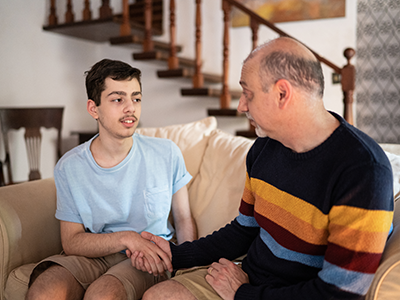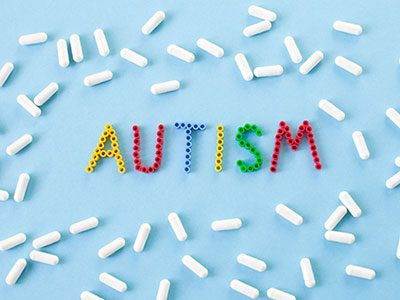The Centers for Disease Control and Prevention recently issued an advisory about an uptick in enterovirus D68 (EV-D68) cases causing severe respiratory illness requiring hospitalization in children. Here’s what you need to know.
What is enterovirus D68 (EV-D68)?
Enterovirus D68 (EV-D68) is a common virus that causes mild, cold-like symptoms such as fever, runny nose, coughing, sneezing or body aches. But EV-D68 can also lead to more severe respiratory illness, as well as acute flaccid myelitis, or AFM, a rare but serious neurological complication that can cause permanent paralysis or death.
EV-D68 is related to the rhinovirus and more than 100 non-polio enteroviruses, which are responsible for the common cold. There is always a spike of enterovirus in the late summer/fall. However, you can get infected year-round.
What are the symptoms of EV- D68?
The symptoms of EV-68 are similar to those of a cold or asthma, which include:
- fever
- wheezing
- coughing
- runny nose
- body and muscle aches
- difficulty breathing
Experts in Infectious Diseases at Children’s National Hospital say children with asthma or those who are less than 5 years old are more vulnerable to the virus. Allergies do not appear to play a role. EV-D68 has no vaccine and no specific treatment other than treating the symptoms.
How is EV-D68 transmitted?
Transmission of EV-68 may occur through close contact with an infected person or by touching objects or surfaces that have the virus on them and touching your eyes, mouth or nose.
Should I be worried about my child becoming paralyzed from contracting EV-D68?
Most people who get EV-D68 only experience cold-like symptoms. Occasionally, EV-D68 can result in a condition called acute flaccid myelitis (AFM), which is characterized by inflammation in the neck region of the spinal cord. Some people with AFM have difficulty moving their arms, while others experience weakness in all four extremities.
If your child has a respiratory illness and experiences any of the following AFM symptoms, you should seek medical attention:
- Sudden onset of arm or leg weakness, loss of muscle tone and loss of reflexes.
- Drooping eyelids or difficulty moving the eyes
- Facial droop or weakness
- Difficulty talking or swallowing
- Severe pain or numbness in arms or legs
- Pain in neck or back
- Difficulty breathing
How can I protect my child from EV-D68?
Enteroviruses spread when an infected person coughs, sneezes or touches a surface that is then touched by others. So, hand washing and practicing good personal hygiene are the best way to prevent the spread of germs. There is neither a vaccine nor specific treatment for enterovirus other than treating the symptoms.
The CDC recommends protecting yourself and others from the virus by:
- Washing hands frequently especially after using the bathroom or changing diapers
- Avoiding touching your eyes, nose and mouth with unwashed hands
- Avoiding close contact with people who are sick
- Cleaning and disinfecting frequently touched surfaces
- Covering your coughs and sneezes with a tissue or your upper shirt sleeve
- Staying home when you are sick
Parents should also consider the following to minimize their children’s fears:
- Find out what they know to hear any misconceptions or misunderstandings they may have
- Stay informed of recent developments, teach sensible precautions and explain the facts
- Talk about hygiene to not only help protect your child from the illness, but will also keep him or her healthier in general
What should I do if I think my child has EV-D68?
If a child has the virus, the illness can escalate quickly. If your child has the symptoms listed above and you suspect your child may have the virus, contact your pediatrician right away. While there is no specific treatment or antiviral medication for EV-D68, your healthcare provider can tell you the best ways to control your child’s symptoms.
 https://riseandshine.childrensnational.org/wp-content/uploads/2022/05/Father-and-son-talking-at-home-feature.png
300
400
Rise and Shine
https://riseandshine.childrensnational.org/wp-content/uploads/2017/11/childrens_riseandshine_logo.jpg
Rise and Shine2026-02-02 01:12:352026-02-02 15:21:38Talking to your child about their autism diagnosis
https://riseandshine.childrensnational.org/wp-content/uploads/2022/05/Father-and-son-talking-at-home-feature.png
300
400
Rise and Shine
https://riseandshine.childrensnational.org/wp-content/uploads/2017/11/childrens_riseandshine_logo.jpg
Rise and Shine2026-02-02 01:12:352026-02-02 15:21:38Talking to your child about their autism diagnosis




















Leave a Comment
Want to join the discussion?Feel free to contribute!